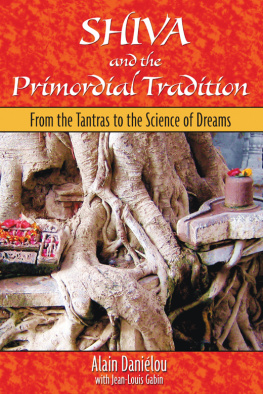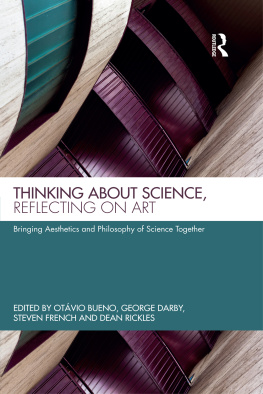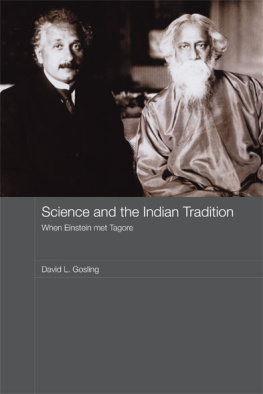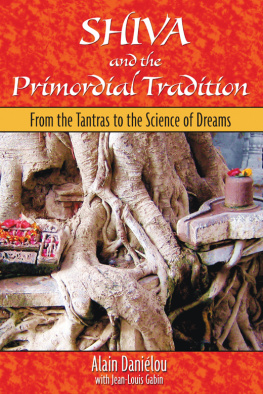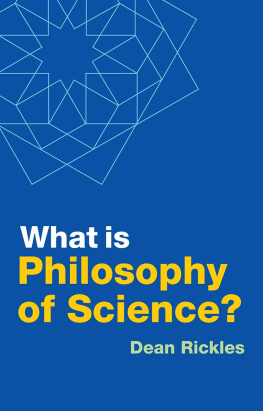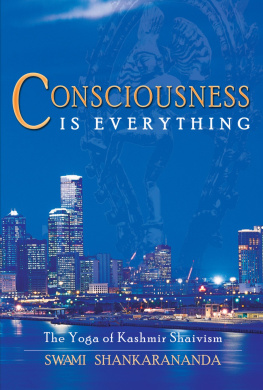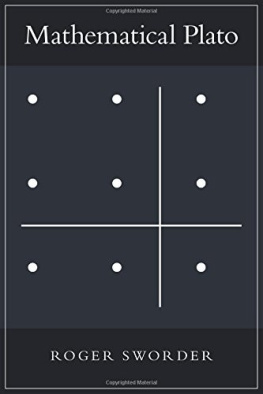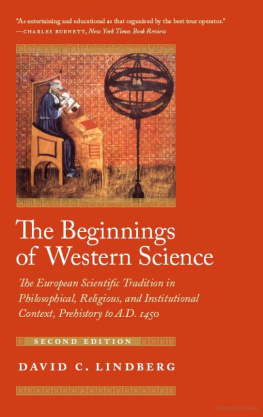Alain Daniélou - Shiva and the Primordial Tradition: From the Tantras to the Science of Dreams
Here you can read online Alain Daniélou - Shiva and the Primordial Tradition: From the Tantras to the Science of Dreams full text of the book (entire story) in english for free. Download pdf and epub, get meaning, cover and reviews about this ebook. year: 2007, publisher: Inner Traditions, genre: Religion. Description of the work, (preface) as well as reviews are available. Best literature library LitArk.com created for fans of good reading and offers a wide selection of genres:
Romance novel
Science fiction
Adventure
Detective
Science
History
Home and family
Prose
Art
Politics
Computer
Non-fiction
Religion
Business
Children
Humor
Choose a favorite category and find really read worthwhile books. Enjoy immersion in the world of imagination, feel the emotions of the characters or learn something new for yourself, make an fascinating discovery.
- Book:Shiva and the Primordial Tradition: From the Tantras to the Science of Dreams
- Author:
- Publisher:Inner Traditions
- Genre:
- Year:2007
- Rating:3 / 5
- Favourites:Add to favourites
- Your mark:
Shiva and the Primordial Tradition: From the Tantras to the Science of Dreams: summary, description and annotation
We offer to read an annotation, description, summary or preface (depends on what the author of the book "Shiva and the Primordial Tradition: From the Tantras to the Science of Dreams" wrote himself). If you haven't found the necessary information about the book — write in the comments, we will try to find it.
This rare collection of the late authors writings, selected and edited by Jean-Louis Gabin, contains several never-before-published articles and offers an extensive examination of the underpinnings of Shaivism. It provides an in-depth look at the many facets of the Samkhya, the cosmologic doctrines of the Shaivite tradition. Danilou provides important revelations on subjects such as the science of dreams, the role of poetry and sexuality in the sacred, the personality of the great Shankara, and the Shaivite influence on the Scythians and the Parthians (and by extension, the Hellenic world in general). Providing a convincing argument in favor of the polytheistic approach, he explains that monotheism is merely the deification of individualism--the separation of humanity from nature--and that by acknowledging the sacred in everything, we can recognize the imprint of the primordial tradition.
ALAIN DANILOU (19071994) spent more than fifteen years in the traditional society of India, using only the Sanskrit and Hindi languages and studying music and philosophy with eminent scholars. He was duly initiated into esoteric Shaivism, which gave him unusual access to texts transmitted through the oral tradition alone. He is the author or translator of more than thirty books on the religion, history, and arts of India and the Mediterranean, including The Complete Kama Sutra, The Myths and Gods of India, and A Brief History of India.
JEAN-LOUIS GABIN, Ph.D., began collecting and editing the various texts in this volume in collaboration with Danilou while he was still alive. He is working on an additional Ph.D. in Philosophy of Religion and Indology on the subject Tradition and Modernity in the works of Alain Danilou. He also has edited and published five posthumous collections of Alain Danilous work in French as well as serving as editor of the English edition of India: A Civilization of Differences.
Alain Daniélou: author's other books
Who wrote Shiva and the Primordial Tradition: From the Tantras to the Science of Dreams? Find out the surname, the name of the author of the book and a list of all author's works by series.

